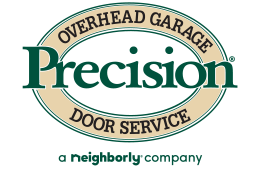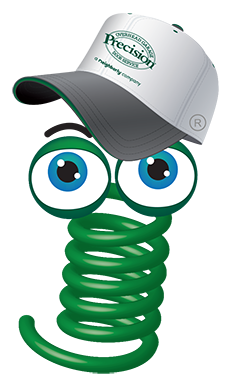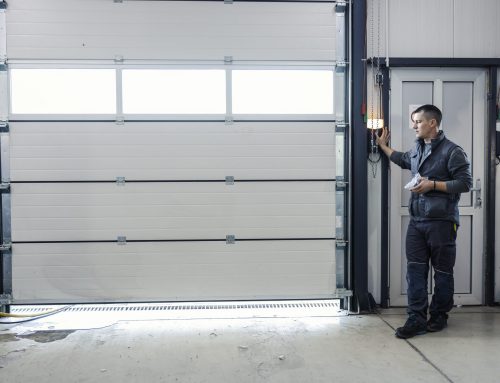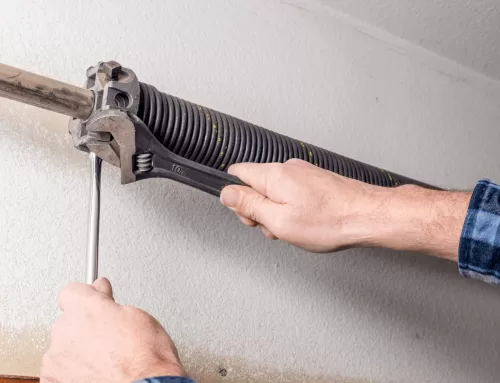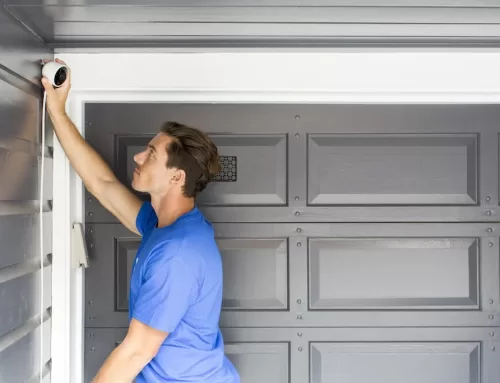Preventing Garage Door Breakdowns by Anticipating Common Problems
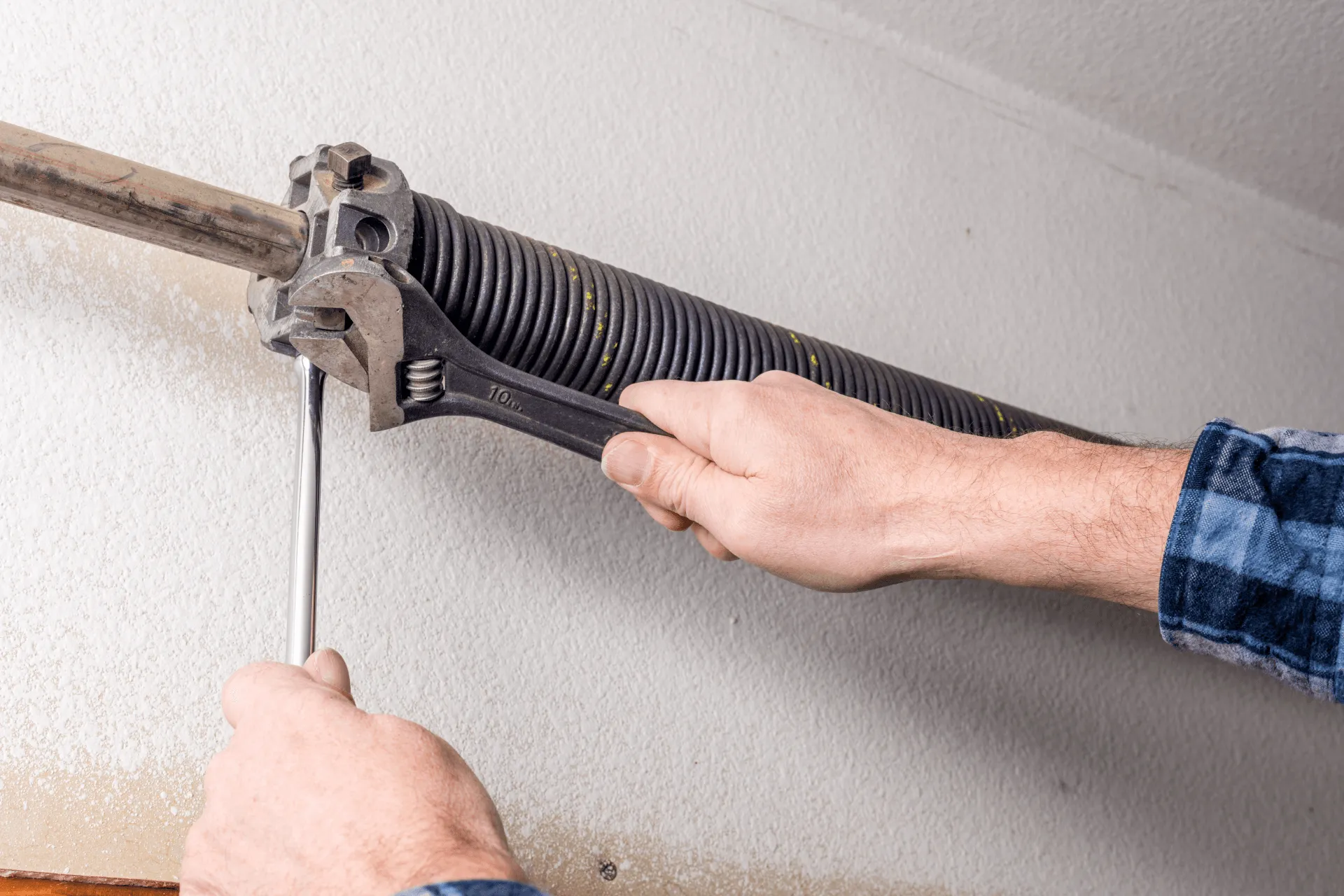
A functional garage door is essential for safeguarding your vehicles and belongings while providing convenient access to your home. However, like any mechanical system, garage doors are susceptible to wear and tear over time, increasing the risk of breakdowns and malfunctions.
By anticipating common garage door problems, you can take proactive measures to prevent them from occurring, saving yourself time, money, and frustration.
Common Garage Door Problems and Solutions
Noisy operation
Garage doors should operate smoothly and quietly. Noisy operation often indicates worn or damaged rollers, tracks, or springs. Replacing these components can restore quiet operation.
Misaligned tracks
Misaligned tracks can cause the door to bind, wobble, or even derail. Regularly inspecting the tracks for debris and ensuring they are straight and level can prevent alignment issues.
Damaged springs
Garage door springs are under immense tension and can break over time. Broken springs can cause the door to fall unexpectedly, posing a safety hazard. If you notice signs of spring damage, such as rust, cracks, or unusual noises, have them replaced by a professional.
Malfunctioning opener
The garage door opener is responsible for controlling the door’s movement. If the opener is not working properly, the door may not open or close completely, or it may respond erratically to remote commands. Troubleshooting the opener’s power supply, sensors, and motor can often resolve the issue.
Weatherstripping issues
Worn or damaged weatherstripping can allow drafts, dirt, and pests into your garage. Replace weatherstripping regularly to maintain a tight seal and prevent these problems.
Preventative Maintenance for Garage Doors
To prevent garage door breakdowns, regular maintenance is crucial. Here are some essential maintenance tips:
- Visual inspection: Regularly inspect the garage door, tracks, rollers, springs, and opener for signs of wear, damage, or loose components. Address any issues promptly to prevent further damage.
- Lubrication: Lubricate moving parts, such as rollers, hinges, and the opener’s chain or belt, to reduce friction and wear. Use a lubricant specifically designed for garage doors.
- Track cleaning: Keep the tracks clean and free of debris, such as dirt, leaves, and twigs, to prevent the door from binding or derailing.
- Balance check: Test the garage door’s balance to ensure it opens and closes smoothly without excessive force. Adjust the springs if necessary.
- Safety sensors: Ensure the garage door’s safety sensors are working properly to prevent the door from closing on obstacles or people. Test the sensors regularly.
Seasonal Garage Door Maintenance
In addition to regular maintenance, consider seasonal adjustments to keep your garage door in top condition:
- Winter: Winter weather can put extra strain on garage doors due to snow, ice, and cold temperatures. Lubricate moving parts more frequently and check for condensation or frozen components.
- Summer: Summer heat can cause metal components to expand and contract, potentially affecting door alignment. Regularly inspect the tracks and check for signs of warping or binding.
Professional Maintenance
For comprehensive garage door maintenance, consider hiring a professional garage door technician. They can perform a thorough inspection, identify potential problems, make necessary repairs, and provide expert advice on proper maintenance practices.
By following these preventative measures and paying attention to signs of potential problems, you can anticipate and avoid common garage door breakdowns, ensuring your garage door operates smoothly and safely for years to come.
DIY Garage Door Repairs
While some garage door repairs can be handled by homeowners with basic DIY skills, it’s essential to exercise caution and avoid attempting complex repairs without proper training and experience. For instance, replacing broken springs or repairing the opener’s motor requires specialized knowledge and tools.
If you’re not comfortable performing DIY repairs, it’s always advisable to consult a professional garage door technician. They can safely and effectively diagnose the problem, make the necessary repairs, and provide guidance on maintaining your garage door in top condition.
Fixing Common Garage Door Faults
Some common garage door faults can be easily fixed by homeowners:
- Lubricating moving parts: Use a silicone-based lubricant to lubricate rollers, hinges, and the opener’s chain or belt.
- Cleaning tracks: Remove dirt, leaves, and twigs from the tracks to ensure smooth door movement.
- Tightening loose screws or bolts: Check for loose screws or bolts on the tracks, rollers, and brackets, and tighten them securely.
- Adjusting the door balance: If the door is not opening or closing evenly, adjust the springs to redistribute the weight.
- Replacing weatherstripping: Replace worn or damaged weatherstripping with new seals to prevent drafts and pests.
If you’re unsure about fixing a particular fault, it’s always best to consult a professional for assistance.
Preventing Garage Door Emergencies
By regularly inspecting and maintaining your garage door, you can prevent most common problems and avoid unexpected breakdowns. A routine check-up can identify potential issues early on, allowing you to address them before they escalate into emergencies.
Reducing Garage Door Noise
A noisy garage door can be a nuisance. To reduce garage door noise:
- Lubricate moving parts: Regular lubrication of rollers, hinges, and the opener’s chain or belt can significantly reduce noise.
- Check for damaged rollers: Worn or damaged rollers can cause grinding or scraping noises. Replace damaged rollers promptly.
- Inspect tracks: Ensure the tracks are clean and free of debris, as dirt and twigs can cause a rattling sound.
- Check the opener: If the opener is making noise, check for loose components or a worn-out chain or belt.
- Adjust door balance: An unbalanced door can put unnecessary strain on the opener, increasing noise levels. Adjust the springs to ensure the door is balanced.
Ensuring Garage Door Safety and Longevity
To ensure the safety and longevity of your garage door:
- Regular inspection: Inspect the garage door, tracks, rollers, springs, and opener at least twice a year for signs of wear, damage, or loose components.
- Preventative maintenance: Perform regular maintenance tasks like lubricating moving parts, cleaning tracks, and checking for loose screws or bolts.
- Professional check-up: Schedule a professional garage door inspection every two to three years for a thorough assessment and expert advice.
- Avoid DIY repairs: Unless you have the necessary expertise and tools, it’s best to avoid DIY repairs on garage door springs, openers, or other complex components. These repairs should be handled by a qualified garage door technician.
- Safety precautions: Always follow safety precautions when operating or inspecting your garage door. Keep hands and fingers away from moving parts, and ensure children are supervised when near the garage door.
- Replace old components: As garage door components age, they become more susceptible to failure. Proactively replacing worn or damaged parts can extend the lifespan of your garage door and prevent breakdowns.
By following these guidelines and maintaining your garage door properly, you can ensure its safety, longevity, and smooth operation for years to come.
Final Thoughts
A functioning garage door is essential for the security and convenience of your home. By implementing preventative maintenance measures, anticipating common problems, and addressing issues promptly, you can keep your garage door operating smoothly and safely for years to come. Regular inspection, lubrication, and professional check-ups can significantly reduce the risk of breakdowns and extend the lifespan of your garage door.
Remember, safety should always be a top priority when operating or inspecting your garage door. Taking these precautions can help you avoid costly repairs, ensure the safety of your family and belongings, and maintain the value of your home.
